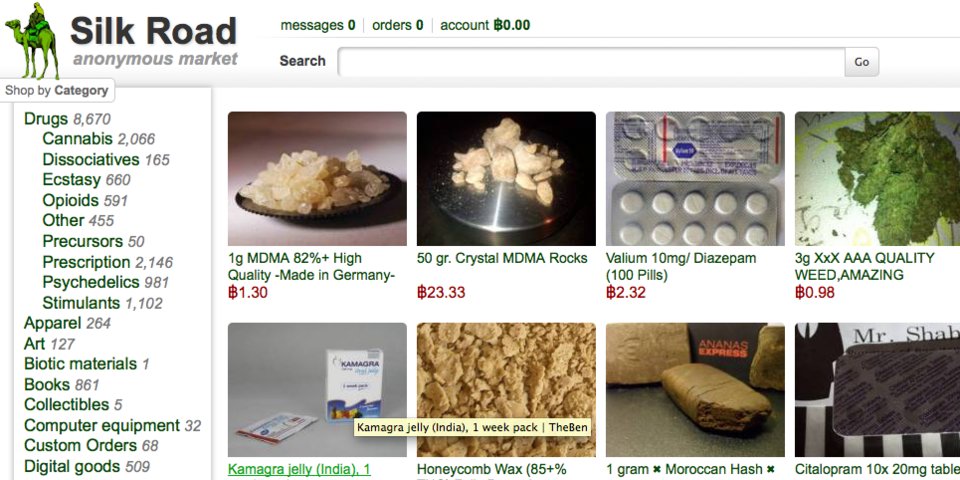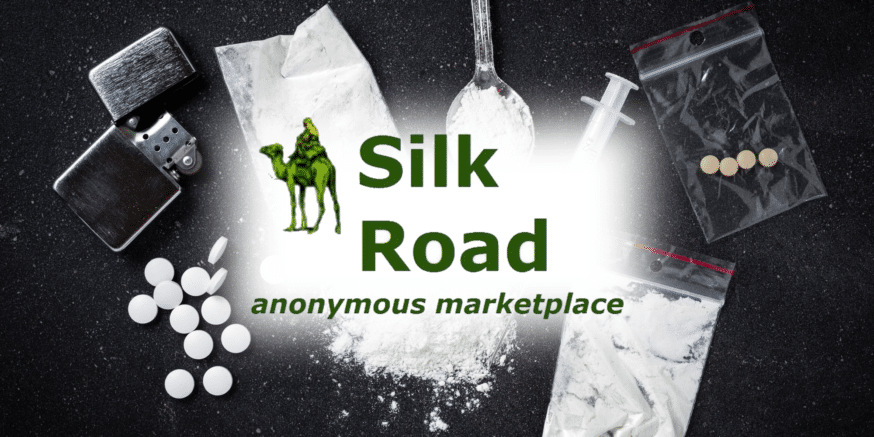ATM hacking tutorials, cocaine energy drinks, and high-quality crystal meth – these things comprise a short list of a much more extensive inventory of items that were once available on Silk Road. Hell, you could even hire a hitman if you had deep enough pockets.
What started as a libertarian’s dream ended with arrests, but that doesn’t mean that Silk Road failed to leave some type of positive impact on the world. Questionable ethics aside, Silk Road was pivotal to cryptocurrency adoption, specifically Bitcoin, and helped pave the way for the entire industry.
Several years after his arrest (and subsequent silence), Silk Road founder Ross Ulbricht recently reached out from prison through a Twitter account. He comments on the “strange journey” of his life and thanks those who have supported him. If you knew Ulbricht before his Silk Road days, seeing him behind bars would probably come as a shock.
Hi, this is Ross! I’m hoping to find my voice here after all these years of silence. It has been a strange journey, but I’m so grateful for all those who’ve shown love and support and held me up through the hard times. You give me strength. https://t.co/x4m6J3lgha
— Ross Ulbricht (@RealRossU) July 19, 2018
Let’s take a step back, then, and walk through the “strange journey” that led Ulbricht to where he is today.
The Beginnings
An Austin, Texas native, Ulbricht was on a much different career path before starting Silk Road. He attempted to day trade stocks and formed a video game company before eventually working with his neighbor, Donny Palmertree, on Good Wagon Books, an e-commerce business for used books. Eventually, Palmertree moved to Dallas and put Ulbricht in charge. His time at the helm was short-lived, though. A few months later, the Good Wagon book warehouse collapsed taking the company with it.
Without a business to manage, Ulbricht was free to work on a long-awaited passion project of his, Silk Road. As a libertarian, Ulbricht wanted to build a truly free market outside the reach of any government entity.
Silk Road was an online marketplace that lived in the dark web. Using Tor, you could browse the market anonymously, and bitcoin acted as the pseudo-anonymous currency to purchase whatever your heart desired.

There were only a few rules in place: no child porn, no scams, and no sales of anything that could harm someone else. Other than that, it was an open market. Although it started with good intentions, the site quickly evolved into something bigger than most people could’ve imagined.
Ulbricht named the marketplace after the historical trading routes that stretched from Europe to Africa and East Asia. Operating under the pseudonym “Dread Pirate Roberts,” he ran the site alone for several months while keeping his anonymity.
The Gawker Blow-up
He was able to maintain this solo operation for quite some time. The site did well from the beginning, providing Ulbricht with enough funds to live comfortably in Australia with his sister. However, it wasn’t so overwhelming popular as to rob him from a healthy work-life balance. However, in June 2011, that all changed.
That summer, a Gawker reporter discovered the site and ran a story about it. The article, which now has more than three million views, thrust Silk Road into the spotlight. At its peak, the site had almost one million user accounts with transaction estimates anywhere from $2 million to $7 million a month.
From the time of Silk Road’s launch until its closure in 2013, the bitcoin price rose from below $1 to right around $130. The Gawker article alone caused the coin to almost double in value from $18 to more than $30.

Driven by a massive uptick in traffic, Ulbricht made several improvements to the platform and brought on a small staff. He moved the site to a more scalable server, built in an escrow service, and improved the rating system among buyers and sellers. He also made an effort to build up the community with groups like a book club to discuss core ideals.
However, at the same time that the underground world was discovering Silk Road, figures on the other side of the coin were catching a whiff as well.
[thrive_leads id=’5219′]
The Sting
Following the Gawker publicity, Senator Charles Schumer publically called on the Drug Enforcement Agency (DEA) and Department of Justice (DOJ) to shut down Silk Road. Several agencies took action. Homeland Security, the IRS, an FBI cybersquad, and several branches of the DEA all wanted a piece.
The “utopian” marketplace first began to unravel with the capture of Curtis Green, an elderly Morman from Utah who was instrumental in helping Ulbricht run the business. Green was captured by Special Agent Carl Mark Force IV of the DEA. Force had been posing undercover as a drug trafficker named “Nob” who rose high in the ranks of Silk Road’s operations.
While Green’s capture and interrogation were taking place, an FBI cybersquad made headway in identifying the Silk Road server. A Reddit thread tipped off the team to a potential IP address leak, exposing the server’s location in Iceland. From there, the cybersquad began tracing the twisted path back to Ulbricht’s computer.
Their search led them to a cafe in San Francisco, the city in which Ulbricht had settled down to continue running the show. But they didn’t have enough data to figure out who the Dread Pirate Roberts was just yet or where exactly he lived.
Without knowing his alter ego, Homeland Security agents stopped by Ulbricht’s residence in San Fran to investigate a stack of fake IDs they confiscated at the Canadian border. Fake IDs that were supposed to arrive at his address. After interviewing him, the agents left but made no arrest.
The Bust
Finally, the FBI cybersquad discovered a series of forum posts related to Silk Road information that led to Ulbricht’s personal email. A quick search through the federal database revealed the Homeland Security’s report on the fake IDs and Ulbricht’s last known address, half a block away from the cafe location of the crucial IP address.
The investigative team continued to track Ulbricht, attempting to collect enough evidence to shut down the site and make an arrest. On October 1st, 2013, they had their case.
FBI team members followed Ulbricht to a San Francisco library where they snatched his laptop, searched him, and made the arrest. He was logged in as the Silk Road admin at the time – the conclusive piece of the puzzle.

The Sentencing
Ulbricht was found guilty on seven charges including money laundering, distributing narcotics, and conspiracy to run a “continuing criminal enterprise.” He’s currently serving two life sentences without the possibility for parole.
As the king of the underworld, Ulbricht averaged millions of dollars of transactions per month netting almost $80 million during his tenure. He was also alleged to have ordered multiple hits on adversaries but never received charges.
The FBI seized 144,000 bitcoins at the time of arrest. The stash was worth $28.5 million at the time but has a present value of over one billion dollars. Of that total, the U.S. Marshals Service auctioned off about a third with one person, Tim Draper, purchasing them all.
Now, Ulbricht serves as a martyr for some of those in the libertarian and cryptocurrency movements. But not everyone feels this way. Many believe that he is responsible for some of the most egregious acts in human history while others see him as a savior to mankind.
Whichever way you lean, the scope of his effect on the world is unquestionable. And, without his drug-fueled bazaar, Bitcoin and the rest of blockchain technology may not have gotten to where it is today.
On June 28, 2018, the Supreme Court denied Ulbricht’s final appeal for them to review and reconsider his sentences. Ulbricht’s mother has since started a petition for him to receive clemency from the President. For more information about the Free Ross campaign, you can check out the campaign’s website or his petition for clemency.







